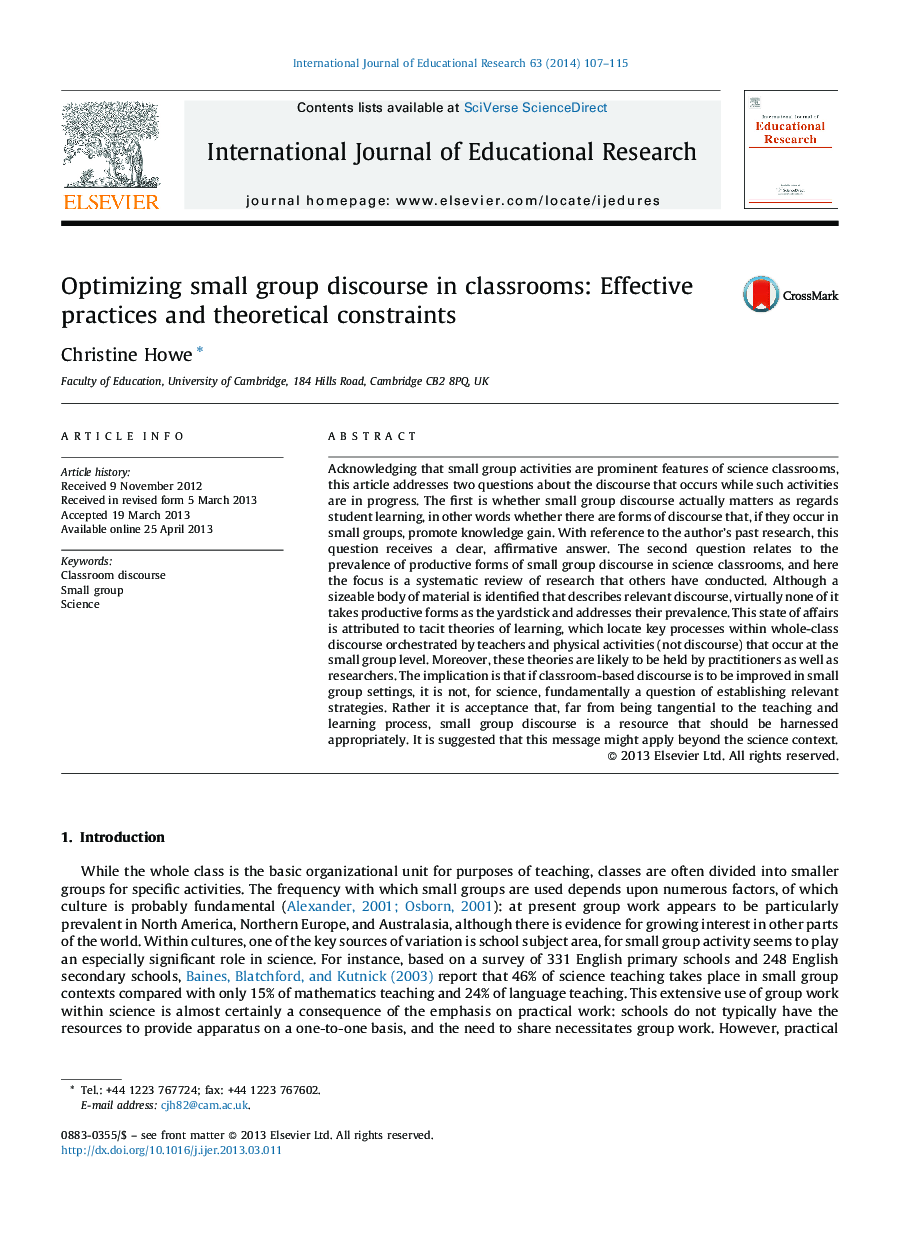| Article ID | Journal | Published Year | Pages | File Type |
|---|---|---|---|---|
| 6841656 | International Journal of Educational Research | 2014 | 9 Pages |
Abstract
Acknowledging that small group activities are prominent features of science classrooms, this article addresses two questions about the discourse that occurs while such activities are in progress. The first is whether small group discourse actually matters as regards student learning, in other words whether there are forms of discourse that, if they occur in small groups, promote knowledge gain. With reference to the author's past research, this question receives a clear, affirmative answer. The second question relates to the prevalence of productive forms of small group discourse in science classrooms, and here the focus is a systematic review of research that others have conducted. Although a sizeable body of material is identified that describes relevant discourse, virtually none of it takes productive forms as the yardstick and addresses their prevalence. This state of affairs is attributed to tacit theories of learning, which locate key processes within whole-class discourse orchestrated by teachers and physical activities (not discourse) that occur at the small group level. Moreover, these theories are likely to be held by practitioners as well as researchers. The implication is that if classroom-based discourse is to be improved in small group settings, it is not, for science, fundamentally a question of establishing relevant strategies. Rather it is acceptance that, far from being tangential to the teaching and learning process, small group discourse is a resource that should be harnessed appropriately. It is suggested that this message might apply beyond the science context.
Related Topics
Social Sciences and Humanities
Social Sciences
Education
Authors
Christine Howe,
